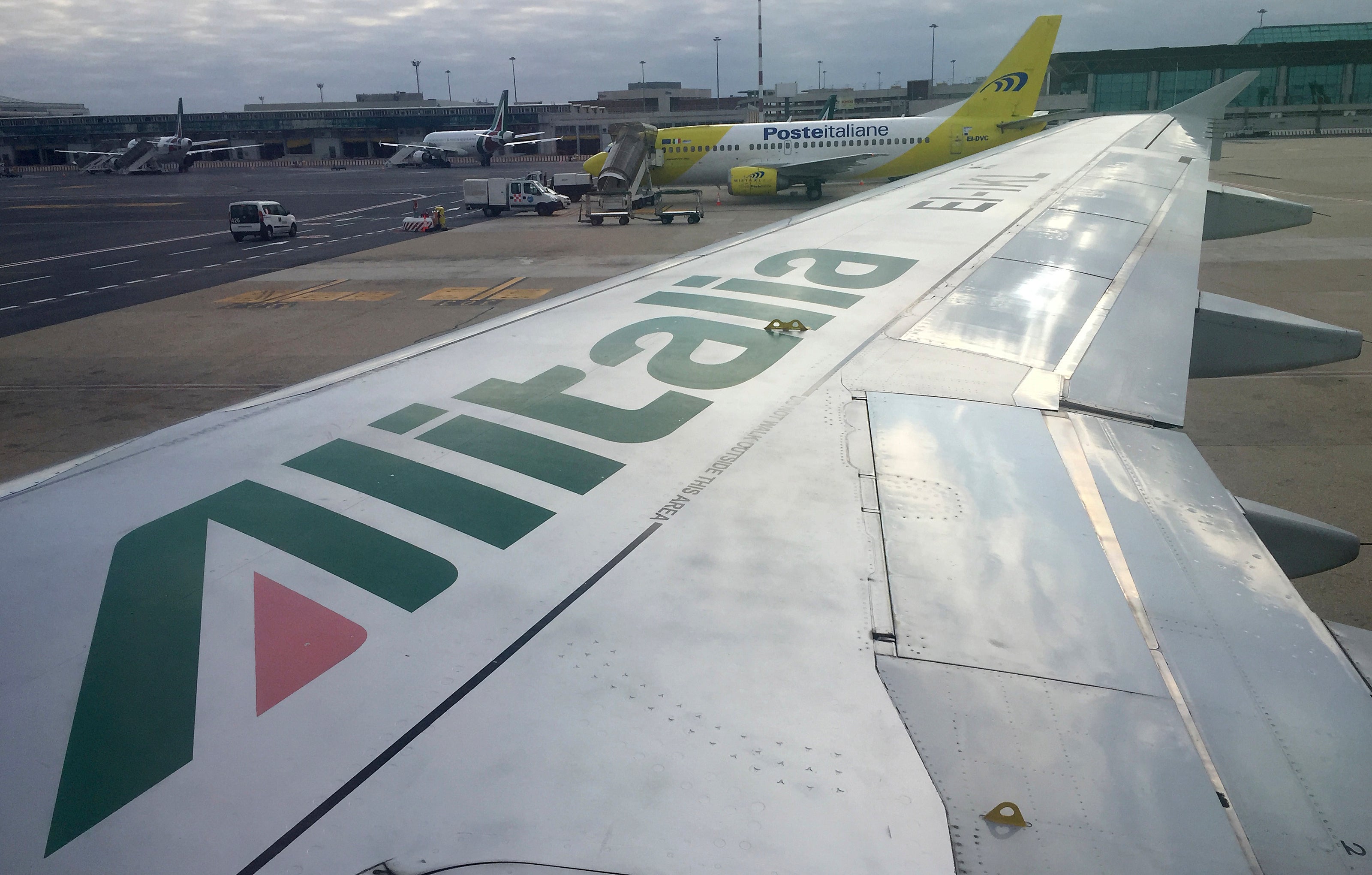Italian connections promised by new national airline
Plane Talk: I can see no possible reason to be optimistic about Italia Trasporto Aereo, the latest attempt to turn around Alitalia

Your support helps us to tell the story
From reproductive rights to climate change to Big Tech, The Independent is on the ground when the story is developing. Whether it's investigating the financials of Elon Musk's pro-Trump PAC or producing our latest documentary, 'The A Word', which shines a light on the American women fighting for reproductive rights, we know how important it is to parse out the facts from the messaging.
At such a critical moment in US history, we need reporters on the ground. Your donation allows us to keep sending journalists to speak to both sides of the story.
The Independent is trusted by Americans across the entire political spectrum. And unlike many other quality news outlets, we choose not to lock Americans out of our reporting and analysis with paywalls. We believe quality journalism should be available to everyone, paid for by those who can afford it.
Your support makes all the difference.“Be fearful when others are greedy, and greedy when others are fearful” – Warren Buffett’s view on investment is well known. The “sage of Omaha” celebrates boldness when others are cautious. But I imagine the $100bn (£73bn) businessman did not have Italian aviation in mind.
Alitalia, you will recall, has been flying the red, white and green flag for Italy since the end of the Second World War. With the emphasis, financially speaking, on red.
Rumour (and a well-known online encyclopaedia) has it that the carrier made a profit in 1998. But since then the Italian government and various proxies (usually other state institutions) have pumped €5bn into Alitalia to keep it afloat, while all available evidence yelled: “Let it fail.”
I find it difficult to visualise very large numbers, so instead I have calculated that the subsidy amounts to €7 or £6 per second for the past 23 years. Some of the beneficiaries include British passengers who flew between London and Sydney for £352 return, the loss-leading fare that Alitalia briefly offered before it pulled out of Australia.
Every European country from Luxembourg to Germany wants a national airline: even though pan-continental brands such as easyJet, Ryanair and Wizz Air dominate so much aviation in Europe, flying the flag appears deep-rooted in the national psyche.
My view that “Alitalia is too Italian to fail” has been sustained through the coronavirus pandemic. But it now appears that the new Italian finance minister, Daniele Franco, may have identified more pressing matters than to continue to pour billions into a bottomless hole.
By 15 October, if things go according to plan, Alitalia will be no more – yet overnight being transformed into an airline bearing a very strong resemblance to it. Prepare to welcome Italia Trasporti Aereo, also known as ITA.
Conveniently, ITA will inherit the prime slots of Alitalia at airports such as London Heathrow and Milan Linate, as well as the fleet and staff.
The directors talk a good game. Their vision is to “create an efficient, innovative and competitive air carrier, able to offer the country quality connectivity in synergy with the strategic sectors of premium leisure and international business”.
The cunning plan is to “allow an economic return on the amount invested”. They have the confidence to predict a fleet of 105 aircraft flying to 74 destinations worldwide (with Milan Linate to Manchester starting in 2023, for example) and turning a very precise profit of €209m (£178m) by 2025.
Where to start? Well, there may be value in the flying rights between Rome and Asia, Africa and South America, but these are tiny compared with intra-European and transatlantic markets.
ITA could also be a potential partner for a bigger airline keen to organise some feed to its network – whether Air France/KLM or Lufthansa in Germany, or Delta (Alitalia’s existing American sibling in the Skyteam Alliance).
Within Europe, or even domestically in Italy, though? The airline schedule analyst Sean Moulton describes what could possibly go wrong.
“Over the past 12 months, Ryanair and Wizz Air have added aircraft into Rome along with many domestic routes around Italy, meaning the new ITA may struggle to compete on pricing compared to these carriers,” he says.
“Additionally, with the reduced demand for long haul and business orientated routes, the airline’s profitability will suffer.”
He envisages “major challenges to the new carrier”. I foresee an early cash call for Signor Franco. I wonder if he has Warren Buffett’s number?
Join our commenting forum
Join thought-provoking conversations, follow other Independent readers and see their replies
Comments